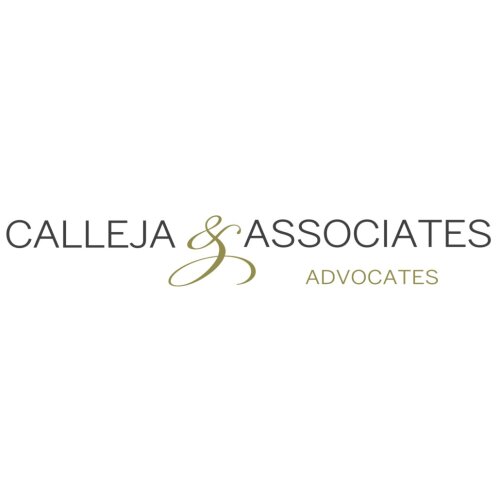Best Bankruptcy Lawyers in Malta
Share your needs with us, get contacted by law firms.
Free. Takes 2 min.
Or refine your search by selecting a city:
List of the best lawyers in Malta
About Bankruptcy Law in Malta
Bankruptcy law in Malta is primarily governed by the Commercial Code and related regulations. These laws dictate how individuals and businesses that are unable to meet their financial obligations can seek relief through legal channels. Bankruptcy is intended to either restructure debts to allow recovery or to liquidate assets to pay off creditors. The Maltese legal system offers different avenues for resolving insolvency, including company reconstructions and voluntary dissolution or liquidation proceedings.
Why You May Need a Lawyer
Navigating bankruptcy laws can be complex and challenging, requiring in-depth legal knowledge. You may need a lawyer if you find yourself facing overwhelming debt, inability to meet financial obligations, or if creditors have initiated legal proceedings against you. A lawyer can provide crucial guidance on your rights and obligations, help you explore all available options, and represent you in court proceedings if necessary. Legal assistance can also be crucial for businesses considering restructuring or filing for liquidation to ensure compliance and protect stakeholder interests.
Local Laws Overview
Key aspects of Maltese bankruptcy law include the following:
- Individual Bankruptcy: For individuals, Malta allows for bankruptcy proceedings to help manage or discharge debt. Individuals may enter into an agreement with creditors or seek court intervention.
- Corporation Insolvency: Companies may undergo voluntary dissolution, voluntary liquidations, or involuntary proceedings. Court-supervised reconstructions aim to preserve the business while meeting debtor obligations.
- Creditor Hierarchy: Maltese law outlines the order of priority for creditor claims, typically favoring secured creditors and employees.
- Bankruptcy Offenses: Legal frameworks set out actions that may constitute bankruptcy offenses, subject to penalties, including fraudulent bankruptcy and preferential treatment to certain creditors.
Frequently Asked Questions
What is the difference between voluntary and involuntary bankruptcy in Malta?
Voluntary bankruptcy is initiated by the debtor, typically seeking relief from creditors through liquidation or restructuring. Involuntary bankruptcy is initiated by creditors when a debtor fails to meet financial obligations.
Can individuals be declared bankrupt in Malta?
Yes, individuals in Malta can file for bankruptcy if they are unable to repay their debts, either through negotiations with creditors or through court proceedings.
How can a business undergo restructuring?
A business may enter into reconstruction proceedings under the supervision of the court, allowing it to reorganize its debts and continue operations with a structured repayment plan.
What are the consequences of being declared bankrupt?
Consequences can include asset liquidation, impact on credit ratings, potential restrictions on starting new businesses, and legal obligations to cooperate with court proceedings.
Can bankruptcy affect my personal assets if my company goes bankrupt?
If your company is a limited liability entity, personal assets are usually protected unless personal guarantees were signed. Sole proprietorships may not have this protection.
What is the role of a liquidator?
A liquidator is appointed to manage the winding up of a company, settle debts, and distribute any remaining assets to shareholders or creditors.
How long does the bankruptcy process typically take?
The duration can vary widely based on case complexity, ranging from several months to several years for complete resolution.
Is bankruptcy information in Malta a matter of public record?
Yes, bankruptcy filings are generally a matter of public record and can impact creditworthiness and future business dealings.
What should I do if I'm contacted by a creditor after declaring bankruptcy?
You should inform the creditor of your bankruptcy status and refer them to your legal representative. Continued collection efforts may violate court orders.
Are there alternatives to bankruptcy in Malta for settling debts?
Yes, alternatives include negotiating new payment terms with creditors, setting up a payment plan, or debt consolidation, potentially avoiding the need for formal bankruptcy proceedings.
Additional Resources
For more information and guidance, consider reaching out to the following resources:
- The Malta Financial Services Authority (MFSA) provides oversight and guidance for companies in financial distress.
- The University of Malta offers educational resources and publications on Maltese commercial law.
- Legal aid services in Malta can offer assistance to those unable to afford legal representation.
Next Steps
If you are considering filing for bankruptcy or need guidance on managing your debts, the first step is to consult with a specialized bankruptcy lawyer. They will assess your individual or business circumstances and advise you on the most suitable course of action. It's also important to gather all relevant financial documents and maintain records of your income, expenses, and debt obligations when preparing for legal advice.
Lawzana helps you find the best lawyers and law firms in Malta through a curated and pre-screened list of qualified legal professionals. Our platform offers rankings and detailed profiles of attorneys and law firms, allowing you to compare based on practice areas, including Bankruptcy, experience, and client feedback.
Each profile includes a description of the firm's areas of practice, client reviews, team members and partners, year of establishment, spoken languages, office locations, contact information, social media presence, and any published articles or resources. Most firms on our platform speak English and are experienced in both local and international legal matters.
Get a quote from top-rated law firms in Malta — quickly, securely, and without unnecessary hassle.
Disclaimer:
The information provided on this page is for general informational purposes only and does not constitute legal advice. While we strive to ensure the accuracy and relevance of the content, legal information may change over time, and interpretations of the law can vary. You should always consult with a qualified legal professional for advice specific to your situation.
We disclaim all liability for actions taken or not taken based on the content of this page. If you believe any information is incorrect or outdated, please contact us, and we will review and update it where appropriate.
Browse bankruptcy law firms by city in Malta
Refine your search by selecting a city.









